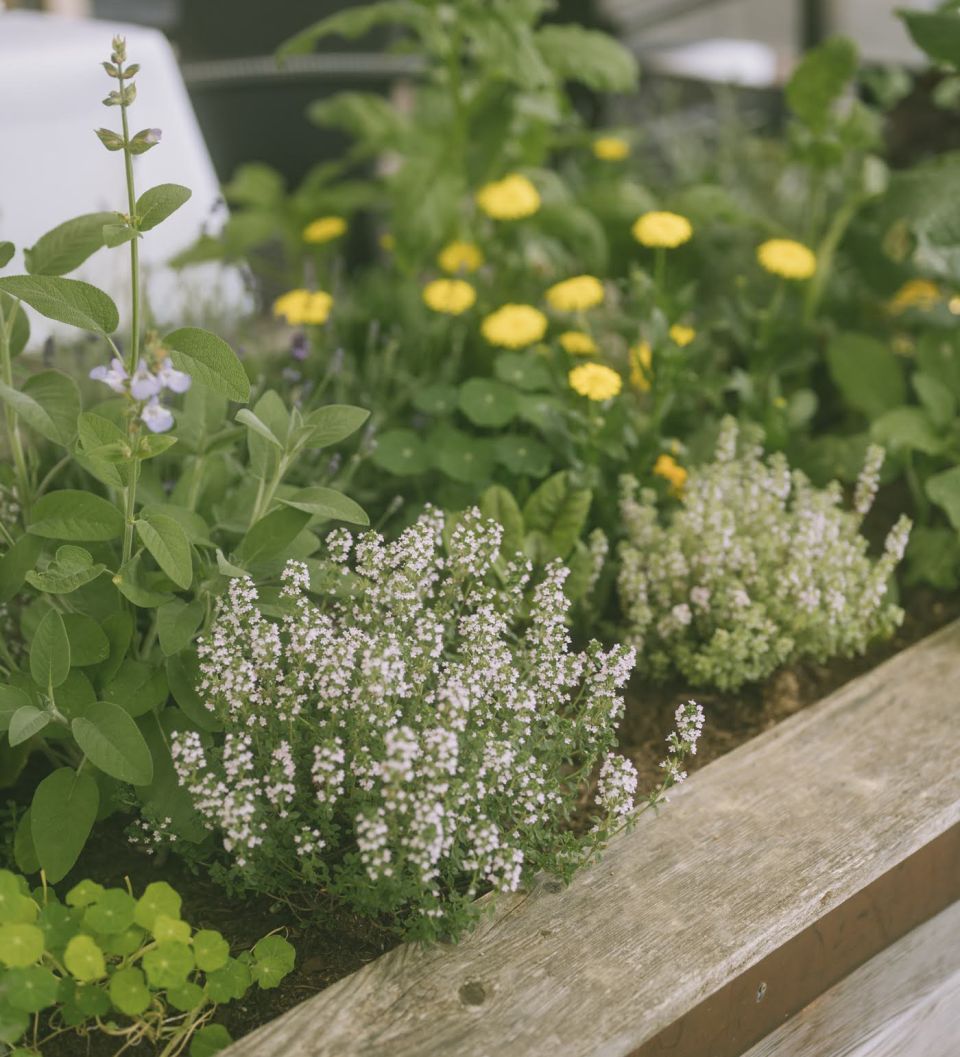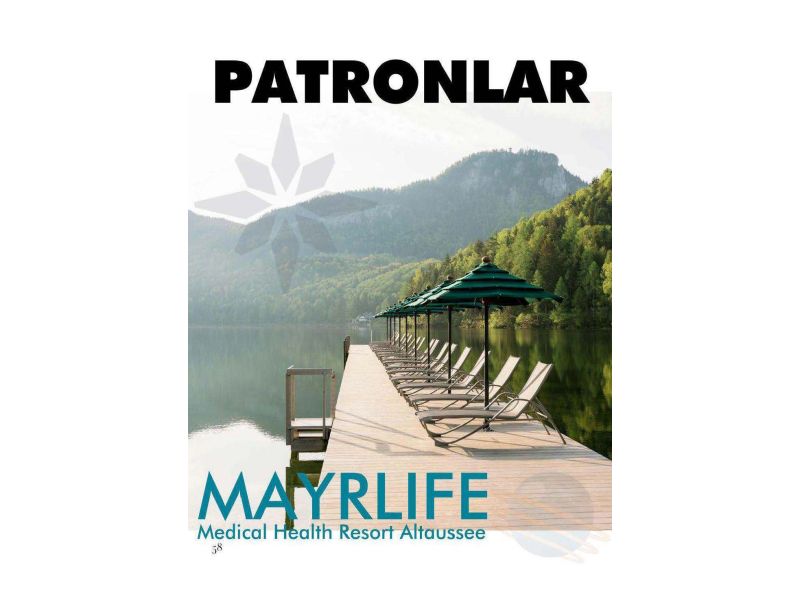Pollen Allergy: Find and Eliminate the Cause
Spring isn’t all rainbows and butterflies. Although the sun and the warmth do us good, many of us are also plagued by pollen allergies. We explain how a pollen allergy is formed, what gut health has to do with it and what actually helps.

Those plagued by a pollen allergy know – springtime doesn’t only bring joy. Sun and warmth are beneficial, of course, but many of us also suffer from signs of a pollen allergy. We explain how pollen allergies occur, the role of gut health, and what really helps to combat them.
Allergies are on the rise across Europe. According to the European Foundation for Allergy Research, 30 percent of the population is affected by an allergy, and the numbers are increasing. Pollen allergy is the most common. But why do some bodies react with allergic responses like hay fever, itchy eyes, or breathing problems to seemingly harmless pollen?
What is a Pollen Allergy? What are Allergies Anyway?
An allergy is always an overreaction of the body, specifically a hypersensitive response of the immune system to certain, basically harmless substances in the environment. These substances, whether plant-based (e.g., flower pollen), animal-based (e.g., animal hair or droppings from house dust mites), or chemical, are mistakenly identified as "enemies" by the human immune system, leading to typical defensive responses such as a runny nose, itchy eyes, skin inflammation, or respiratory problems in pollen allergy sufferers.
"Hay fever occurs when our dry mucous membranes come into contact with pollen from birch, alder, etc., for the first time early in the year. These pollen have many features on their surface that identify them as foreign bodies. In some of us, the immune system has never learned not to overreact to these foreign bodies. Instead, it literally pounces on them," explains holistic physician Dr. Sepp Fegerl.

Pollen allergens usually enter the body via the mucous membranes of the respiratory tract or the eyes. The initial contact with the allergens is always harmless. If there is a genetic predisposition to allergic diseases in the individual, it leads to the so-called sensitization phase. In this phase, the affected person does not yet notice that an allergy is developing. However, their immune system is already reacting to the invading pollen by producing so-called IgE antibodies (Immunoglobulin-E antibodies). The sensitization phase may last for years.
Dr. Fegerl explains: "The immune system has the ability to remember invaders. These are the memory cells, also called B cells. They are located in the lymph nodes and the thymus gland. The problem is that each subsequent contact with pollen allergens intensifies this memory impression."
This phase is called the effector phase. With each new contact with pollen allergens, so-called effector cells (e.g., mast cells) are activated, promoting the release of messengers like histamine. "The pollen is recognized again, and the number of antibodies in the body increases," explains Dr. Fegerl.
This is also why allergies can change over the course of a lifetime, with symptoms either intensifying or even diminishing. Factors influencing these fluctuations can include hormonal changes, changes in lifestyle, intense life phases, negative stress, and diet.

Fighting Pollen Allergy Symptoms is Not Enough
To avoid allergic symptoms, it would be advisable to prevent contact with pollen. However, this proves extremely difficult in practice. While there are pollen protection screens and various medical products that reduce the penetration of pollen or contain allergic reactions, it is impossible to completely avoid contact with pollen. Outdoors, you are directly exposed to the prevailing environmental factors, whether you like it or not.
So, how can you best protect yourself from symptoms during the pollen season?
Here, the gut-associated immune system (also known as GALT: gut-associated lymphoid tissue), which houses about two-thirds of the immune-capable cells of the body, comes into play, along with diet.
"We take a different approach at MAYRLIFE Medical Health Resort Altaussee," points out Dr. Fegerl. "We try to make as many triggers as possible recognizable for the guest – triggers that lead to the immune system already being destabilized and thus reacting particularly violently to allergens. One of these is the measurement of trace elements in the blood, such as zinc, copper, vitamin B12, vitamin C." If these are too low, the experts at MAYRLIFE know precisely what to do, since these are "the most important co-factors for stabilizing an immune response at the allergic level," according to Dr. Fegerl.
Pollen Allergy Treatment with Nutrition: Symptom-Free Through the Right Nutrients?
By supplementing the indicated vitamins and trace elements, sometimes in high dosages as necessary for therapeutic purposes, significant allergic complaints can become merely an annoying irritation. "We use an infusion composition for allergic reactions that contains no cortisone or adrenaline, but rather high-dose calcium, vitamin C, some vitamin B5, some zinc, and it works wonderfully. In acute cases, it's a fantastic remedy," says Dr. Fegerl, offering hope to allergy sufferers.
"Beyond that, needless to say, we address general and systemic inflammation reduction with Mayr medicine and follow-up therapy, always beneficial in such circumstances," explains Dr. Fegerl, detailing the approach at MAYRLIFE.
The stress level you are exposed to should not be underestimated. More intense life phases not only require a higher intake of micronutrients but also challenge the gut. To support nutrient absorption in the gut and digestion, targeted rest periods are essential.
During times when we are less exposed to external stimuli, we not only feel our body and its signals better, but the vagus nerve is also stimulated. This nerve belongs to the parasympathetic nervous system, responsible for our relaxation. The tenth cranial nerve, it connects the gut and brain, leading into the so-called enteric nervous system, which runs through the digestive tract. When we are in a relaxed state, digestion and the gut-associated immune system function better.
To find out more measures to strengthen your body’s defenses, we invite you to read our article "The 7 Most Effective Tips for a Strong Immune System".

Mastering the Pollen Season with a Healthy Gut
If the intestinal mucosa were spread out, they would cover an area of about 400 to 500 square meters. It is thus the largest interface of the body with the "outside," in this case, the bloodstream. No wonder, then, that a large part of the immune system is located in the gut. After all, it is all about fighting substances that have entered the digestive tract that may be harmful to health, preventing them from entering the bloodstream and spreading throughout the body.
To best support your immune system, especially during the pollen season, try to reduce inflammatory responses – which always trigger an increased immune response – in the body to a minimum. In addition to the right supply of micronutrients, intermittent fasting, predominantly alkaline diets, and abstaining from stimulants can prove very helpful.
The MAYRLIFE Cure is especially recommended for pollen allergy sufferers prior to the start of the pollen season. This helps to eliminate inflammation in the body, strengthen the immune system, develop awareness for optimal nutrition, and thus be well-prepared for the next pollen season.
For more tips on how to get through the pollen season and what helps with acute symptoms, listen to Dr. Fegerl in Episode 4 of the MAYRLIFE Health Casts "Springtime – Hay Fever Time".
Sources
Bastl Katharina, Berger Markus, 2021, Pollen und Allergie – Pollenallergie erkennen und lindern [Pollen and allergy – identifying and mitigating pollen allergy], 2nd edition, Manz Verlag, Vienna
Podcast episode MAYRLIFE Health Cast, episode 4, Springtime – Hay Fever Time
Awarded 'Best Medical Spa Worldwide'

World Luxury Spa Award 2023
World’s Best Luxury Medical Spa

Seven Stars Luxury Hospitality and Lifestyle Awards 2022
Best Medical Wellness & Longevity Resort

Condé Nast Readers’ Choice Awards 2022
Best Destination Spa

European Health & Spa Award 2024
Best Medical Resort

Haute Grandeur Global Awards 2024
Best Medical Spa in Europe



